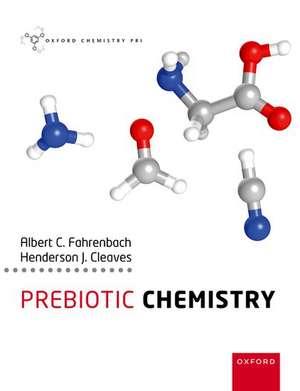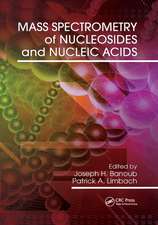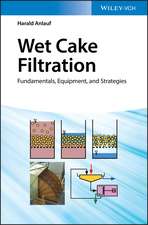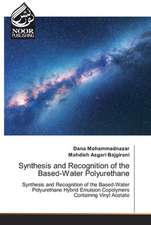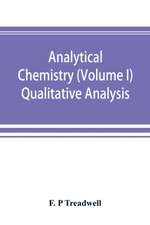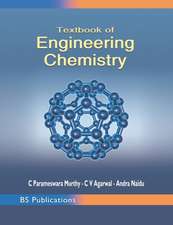Prebiotic Chemistry: Oxford Chemistry Primers
Autor Albert Fahrenbach, Henderson Cleavesen Limba Engleză Paperback – 26 feb 2024
Din seria Oxford Chemistry Primers
- 10%
 Preț: 229.73 lei
Preț: 229.73 lei - 9%
 Preț: 222.64 lei
Preț: 222.64 lei - 10%
 Preț: 229.93 lei
Preț: 229.93 lei - 8%
 Preț: 224.54 lei
Preț: 224.54 lei - 10%
 Preț: 229.79 lei
Preț: 229.79 lei -
 Preț: 224.72 lei
Preț: 224.72 lei - 11%
 Preț: 229.27 lei
Preț: 229.27 lei - 10%
 Preț: 230.41 lei
Preț: 230.41 lei - 14%
 Preț: 195.51 lei
Preț: 195.51 lei - 10%
 Preț: 230.78 lei
Preț: 230.78 lei - 11%
 Preț: 229.44 lei
Preț: 229.44 lei - 14%
 Preț: 196.08 lei
Preț: 196.08 lei - 14%
 Preț: 196.89 lei
Preț: 196.89 lei - 10%
 Preț: 231.39 lei
Preț: 231.39 lei - 11%
 Preț: 229.65 lei
Preț: 229.65 lei -
 Preț: 228.51 lei
Preț: 228.51 lei - 10%
 Preț: 229.93 lei
Preț: 229.93 lei - 11%
 Preț: 229.26 lei
Preț: 229.26 lei -
 Preț: 225.32 lei
Preț: 225.32 lei -
 Preț: 256.59 lei
Preț: 256.59 lei - 11%
 Preț: 229.20 lei
Preț: 229.20 lei - 10%
 Preț: 231.42 lei
Preț: 231.42 lei -
 Preț: 182.92 lei
Preț: 182.92 lei - 14%
 Preț: 195.51 lei
Preț: 195.51 lei - 8%
 Preț: 195.09 lei
Preț: 195.09 lei - 8%
 Preț: 195.12 lei
Preț: 195.12 lei - 8%
 Preț: 195.44 lei
Preț: 195.44 lei - 9%
 Preț: 194.71 lei
Preț: 194.71 lei - 15%
 Preț: 195.09 lei
Preț: 195.09 lei - 8%
 Preț: 198.25 lei
Preț: 198.25 lei - 8%
 Preț: 195.50 lei
Preț: 195.50 lei - 8%
 Preț: 195.50 lei
Preț: 195.50 lei -
 Preț: 183.14 lei
Preț: 183.14 lei - 8%
 Preț: 195.37 lei
Preț: 195.37 lei - 8%
 Preț: 195.57 lei
Preț: 195.57 lei - 8%
 Preț: 195.76 lei
Preț: 195.76 lei - 8%
 Preț: 195.41 lei
Preț: 195.41 lei - 8%
 Preț: 195.37 lei
Preț: 195.37 lei - 8%
 Preț: 195.41 lei
Preț: 195.41 lei - 8%
 Preț: 195.28 lei
Preț: 195.28 lei - 8%
 Preț: 195.42 lei
Preț: 195.42 lei - 8%
 Preț: 195.28 lei
Preț: 195.28 lei - 8%
 Preț: 195.60 lei
Preț: 195.60 lei - 8%
 Preț: 195.32 lei
Preț: 195.32 lei - 8%
 Preț: 195.25 lei
Preț: 195.25 lei - 8%
 Preț: 195.42 lei
Preț: 195.42 lei - 8%
 Preț: 195.32 lei
Preț: 195.32 lei - 8%
 Preț: 195.32 lei
Preț: 195.32 lei - 8%
 Preț: 195.03 lei
Preț: 195.03 lei
Preț: 185.65 lei
Preț vechi: 214.87 lei
-14% Nou
Puncte Express: 278
Preț estimativ în valută:
35.52€ • 37.19$ • 29.39£
35.52€ • 37.19$ • 29.39£
Carte disponibilă
Livrare economică 04-10 martie
Livrare express 01-07 martie pentru 53.52 lei
Preluare comenzi: 021 569.72.76
Specificații
ISBN-13: 9780192856586
ISBN-10: 0192856588
Pagini: 192
Ilustrații: b/w 164 figures and photographs
Dimensiuni: 190 x 247 x 10 mm
Greutate: 0.37 kg
Ediția:1
Editura: OUP OXFORD
Colecția OUP Oxford
Seria Oxford Chemistry Primers
Locul publicării:Oxford, United Kingdom
ISBN-10: 0192856588
Pagini: 192
Ilustrații: b/w 164 figures and photographs
Dimensiuni: 190 x 247 x 10 mm
Greutate: 0.37 kg
Ediția:1
Editura: OUP OXFORD
Colecția OUP Oxford
Seria Oxford Chemistry Primers
Locul publicării:Oxford, United Kingdom
Recenzii
"Good basic introduction into a very complex and still developing area of research."
A comprehensive, up-to-date introduction to origins of life research. In my opinion, the best introduction to the topic since Miller's & Orgel's "Origins of Life on the Earth."
A comprehensive, up-to-date introduction to origins of life research. In my opinion, the best introduction to the topic since Miller's & Orgel's "Origins of Life on the Earth."
Notă biografică
Albert received his BS in Chemistry from Indiana University in 2008, having done research under the tutelage of Professor Amar Flood in synthetic and supramolecular chemistry. He received his PhD from Northwestern University in Organic Chemistry in 2013 under the mentorship of Professor Sir Fraser Stoddart (Nobel Prize 2016) investigating the molecular self-assembly and template-directed syntheses of artificial molecular switches and machines. Albert then moved to Boston to carry out research in origins of life chemistry as a postdoctoral scholar with Professor Jack Szostak (Nobel Prize 2009) at Harvard University and Massachusetts General Hospital. His research here focused on nonenzymatic RNA replication and prebiotic synthesis.Henderson ("Jim") Cleaves is the current president of the International Society for the Study of the Origins of Life. He received his Ph.D in Chemistry and Biochemistry from the University of California San Diego under the tutelage of pioneering prebiotic chemist Professor Stanley L. Miller. He is a research scientist at the Blue Marble Space Institute of Science, a visiting scientist at the Carnegie Institution of Washington's Earth and Planets Laboratory, and an adjunct professor at the Earth-Life Science Institute at the Tokyo Institute of Technology. His current research involves understanding the evolution of complex combinatorial organic reaction networks to help understand the origins of life and the detection of biosignatures for Solar System exploration missions.
